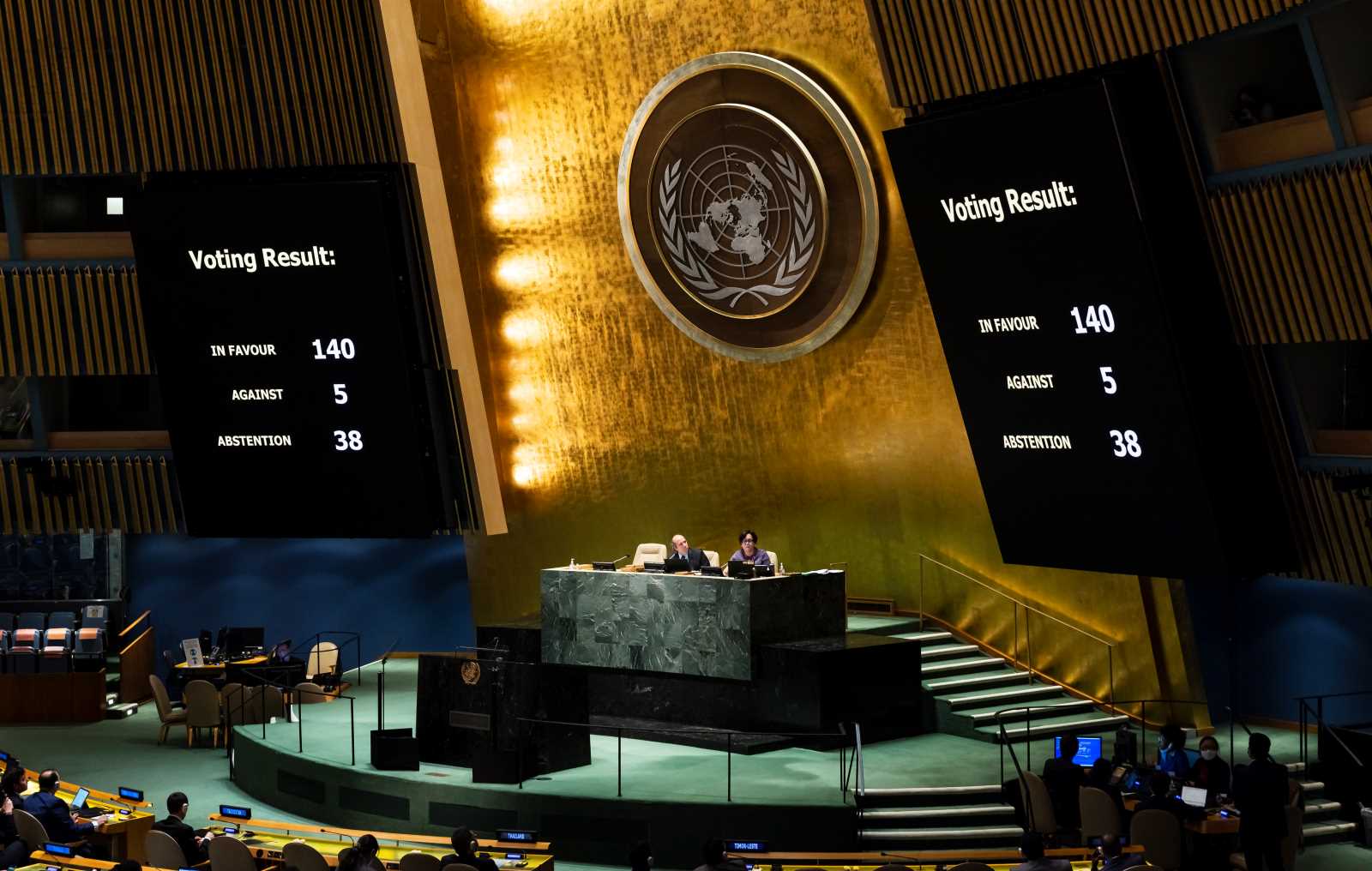Multilateral affairs
Value for money

Since the UN Millennium Development Goals (MDGs) were adopted in 2000, progress towards achieving them has generally been commendable. The UN summarily asserted last year that the MDGs “have been the most successful anti-poverty push in history”. Compared with 1990, extreme poverty has been cut in half. People’s health and education status has also improved in many countries.
However, the UN’s MDG report for 2013 also recognised that action is still needed on issues such as hunger, maternal health, sanitation and environmental protection. Sub-Saharan Africa and the Pacific region are particularly lagging behind in meeting the MDGs.
Building on recent experience, the international community is now discussing an agenda to drive forward development beyond the official MDG deadline of 2015. There is a multilateral consensus that environmental sustainability must feature on the agenda along with poverty eradication. Indeed, the Open Working Group (OWG) of the UN General Assembly (UNGA) has proposed a list of 17 “Sustainable Development Goals” (SDGs) to be attained by 2030.
In some ways, environmental challenges are more urgent than those of poverty. The main reasons are that climate change is irreversible and that environmental degradation exacerbates the vulnerability of poor people. Moreover, poverty can and should be tackled at the national level, whereas nation states cannot do much about global warming on their own.
We must also take into account that the post-2015 initiative is likely to run into financing bottlenecks. The landscape of development finance is changing. It has become less reassuring than it was when the MDGs were defined in 2000. According to the World Bank, the MDG agenda benefited significantly from debt relief and from rising levels of official development assistance (ODA), both of which face some challenges.
Net ODA from members of the OECD (Organisation for Economic Development and Cooperation) grew by 37 % in real terms between 2004 and 2010, when it peaked at almost $ 140 billion. Due to budget constraints after the financial crisis, however, ODA declined by 2.7 % in 2011 and by a further six percent in 2012. Currently OECD members only spend 0.29 % of their combined gross national income (GNI) on ODA even though they promised to spend 0.7 % by 2015. Further declines in ODA spending are likely.
Debt relief helped many developing countries to increase their anti-poverty expenditure. Indeed, debt relief was often tied to anti-poverty strategies. However, debt relief is winding down and will not be a significant source of post-2015 funding.
At the same time, there are some promising trends. Developing countries have become better at generating taxes and other kinds of government revenue. In 2011, domestic resource mobilisation amounted to 29 % of developing countries’ GDP, up from 23 % in 2000. Moreover, remittances from migrants and foreign direct investment have increased dramatically. Finally, philanthropic organisations and the private sector are playing an ever greater role in development affairs.
The governments of developing countries must grasp the new opportunities. Any business-as-usual approach to development finance is bound to fail. There is a need for a paradigm shift to ensure that the available resources will achieve more than in the past. In particular, resources must be used more efficiently and effectively to address the needs of the most vulnerable. The challenge is to achieve results at minimal costs without compromising on quality.
The better the governments become at doing so, the more willing donors will be to finance their policies and the more attractive their countries will look to private-sector companies. In particular, developing countries must lower administrative costs.
Linking inputs to results
The London-based Overseas Development Institute (ODI) has correctly stated that any post-2015 agreement should include provisions on measuring both inputs and results. In the past, the emphasis was either on the former (ODA pledges) or the latter (MDGs). It is essential to make the link.
Two inter-related aspects are particularly relevant in the value-for-money discourse. The public sectors of developing countries, which include the public agencies that must drive development, have to become more efficient, effective, transparent and accountable. For this purpose, they will have to do more cost-benefit assessments of the kind that, so far, has been typical of private-sector companies.
The OECD donors have always demanded value for money. AS ODA is likely to become scarcer in the future, the issues of lean government, transparency and accountability will matter ever more. This trend is reinforced by tax payers in developing countries. They too want value for money.
Many developing countries have implemented democratic reforms in the past two decades, hence more people now consider themselves citizens rather than mere subjects. They want to hold governments accountable. Conventional donors, philanthropists and taxpayers share a common interest in increasing the efficiency, effectiveness, transparency and accountability of public sectors in developing countries. Moreover, they share an interest in getting broad-based private-sector development started, because no other force can really eradicate poverty.
The declining role of ODA suggests that developing countries will be treated with relatively less compassion in the future. In response, developing-country governments must become better at measuring, reporting and communicating the costs and benefits of development interventions. Formerly, governments of developing countries had to improve governance to get access to donor money. In the future, they will have to improve governance to make the most of it.
That said, the rich nations must not simply be let off the hook. We know perfectly well that they will not fulfil their long-standing pledge to provide 0.7% of their GNI as ODA anytime soon. They probably never will. However, the least they can – and must – do is to pave the way for environmental sustainability and support developing countries’ adaptation to climate change (see my essay in D+C/E+Z 2014/03, p. 102 ff.). As developing countries improve governance and fight poverty more effectively, the rich world must shoulder its responsibility on repairing the environmental damages it has caused and delivering global public goods.
The next global development agenda is set to place greater demands on developing countries in terms of ensuring that development finance can be availed and can achieve more benefits from each dollar spent. As the capacities of developing countries improve, that is only fair. At the same time, the OECD nations must tackle those global issues that thwart development in disadvantaged countries. Many of these issues were listed in MDG 8 (“Develop a global partnership for development). Sadly, this is the MDG on which the least progress has been made.
Ronald Mangani is an associate professor at the University of Malawi’s Economics Department. rmangani@yahoo.com















